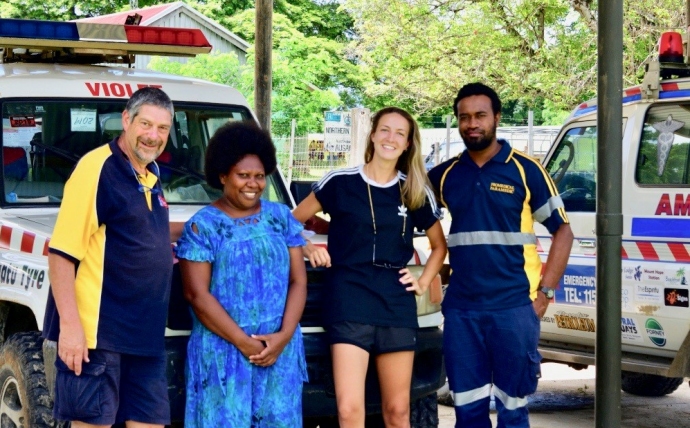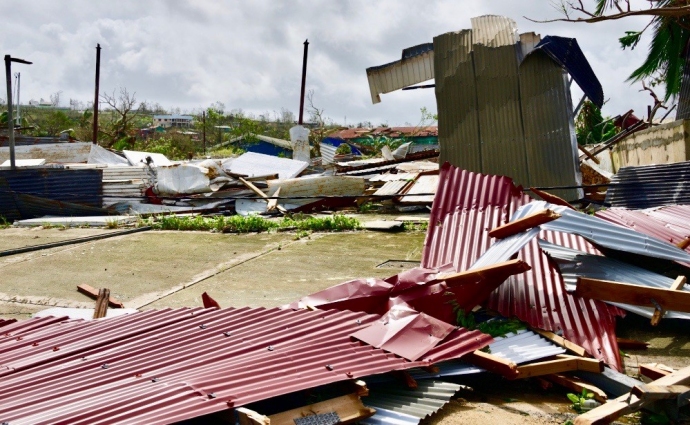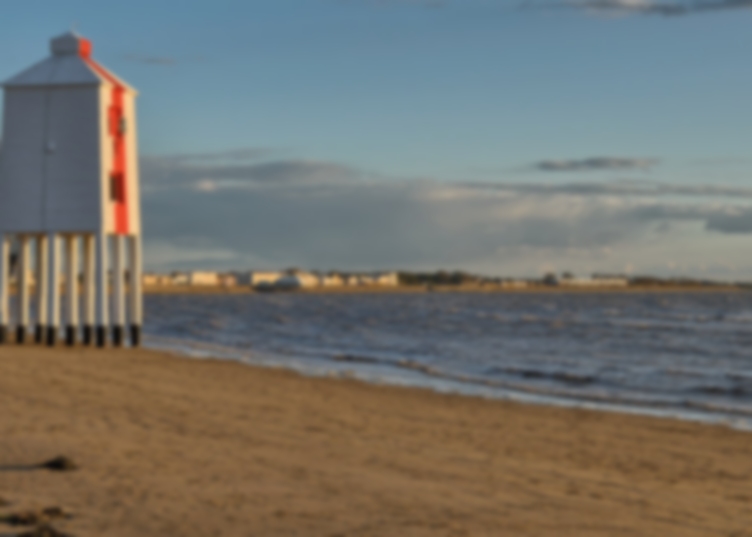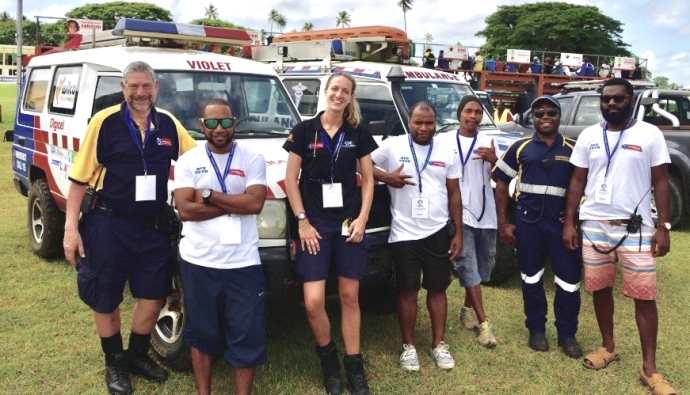Burnham-On-Sea paramedic Nich Woolf is seeing out the Coronavirus lockdown in the remote Pacific nation of Vanuatu – one of the most vulnerable countries in the world for natural disasters – but which is so far Coronavirus-free.
Nich travelled from his Burnham-On-Sea home to the island of Santo in February to work as a volunteer with ambulance crews practising emergency medicine and should have been back in the UK by now, but the country has closed its borders to try to preserve its virus-free status.
This week he is also helping the local people recover from category-five tropical cyclone Harold whose 190 miles per hour winds bore down on the country destroying villages and homes in its wake.
The country’s 80 islands – three-hours flying time from Australia – are prone to volcanic eruptions and earthquakes – and Nich finds himself both a victim and a rescuer in the latest crisis.
Nich, 67, who recently retired from the Welsh Ambulance Service, is no stranger to challenging working conditions. He has previously made four trips to Afghanistan to provide essential training for hospital staff in emergency medicine and use of life-saving equipment. And last year he volunteered as a paramedic in Haiti – one of the most dangerous societies on earth.

He is a long-serving member and trustee of Festival Medical Services, who run the Medical Services at Glastonbury and Reading music festivals and raise money for medical causes in Britain and around the world.
The most serious concern he currently faces – apart from how long he will have to remain in Vanuatu – is how its remoteness and basic health services and infrastructure would make the 300,000 people who live there incredibly vulnerable if Coronavirus were to reach them. For example, Santo’s main hospital has only 31 beds and one ventilator.
Nich, who is believed to be the last British visitor in Vanuatu, told Burnham-On-Sea.com: “They certainly mean to keep the virus out. The Australian air force brought some medical supplies in after the cyclone but were not allowed to set foot on Vanuatu. They stayed on the runway and dropped the supplies on the tarmac.”
“We are sending emergency medical teams into South Santo who help search the villages in the rainforest for casualties. There is a network of health posts – some of which take three days travelling on primitive roads to reach.”
“No help from outside of Vanuatu is permitted. Our isolation here is total and nothing must change that. This country’s people are totally behind their government in maintaining it.”
While he has been in Vanuatu, Nich has enjoyed working with his local colleagues and dealt with many incidents, including cases of sepsis, malaria and dengue fever. He has also coped with the tropical rains and the heat – sometimes reaching 30 degrees Celsius before the sun comes up.
Nich adds: “I’m quite used to being away for two or three months, though I have never not known when I would be returning home before, but I am resigned to it now.”

“I was asked whether I had any plans in place if I was to get ill. The truth is there is no way out. There are no flights due to the borders being closed, and with only one ventilator on this island, survival is probably on a par with winning the National Lottery.”
“But what if I had managed to get a flight back to the UK? I would have been shut in a metal tube for more than 30 hours with a large group of people going home to a Corvid 19-afflicted country.”
“My alternative of being free to move around in the sunshine here on a disease-free island while doing vital paramedic work seems like quite a good alternative.”
“I think going home eventually will be a shock and I don’t think the world will ever be quite the same again.”
Pictured: Paramedic Nich Woolf with his colleague Jerome Sesse in Vanuatu; Nich with local colleagues in Vanuatu; Cyclone Harold devastation in Vanuatu











